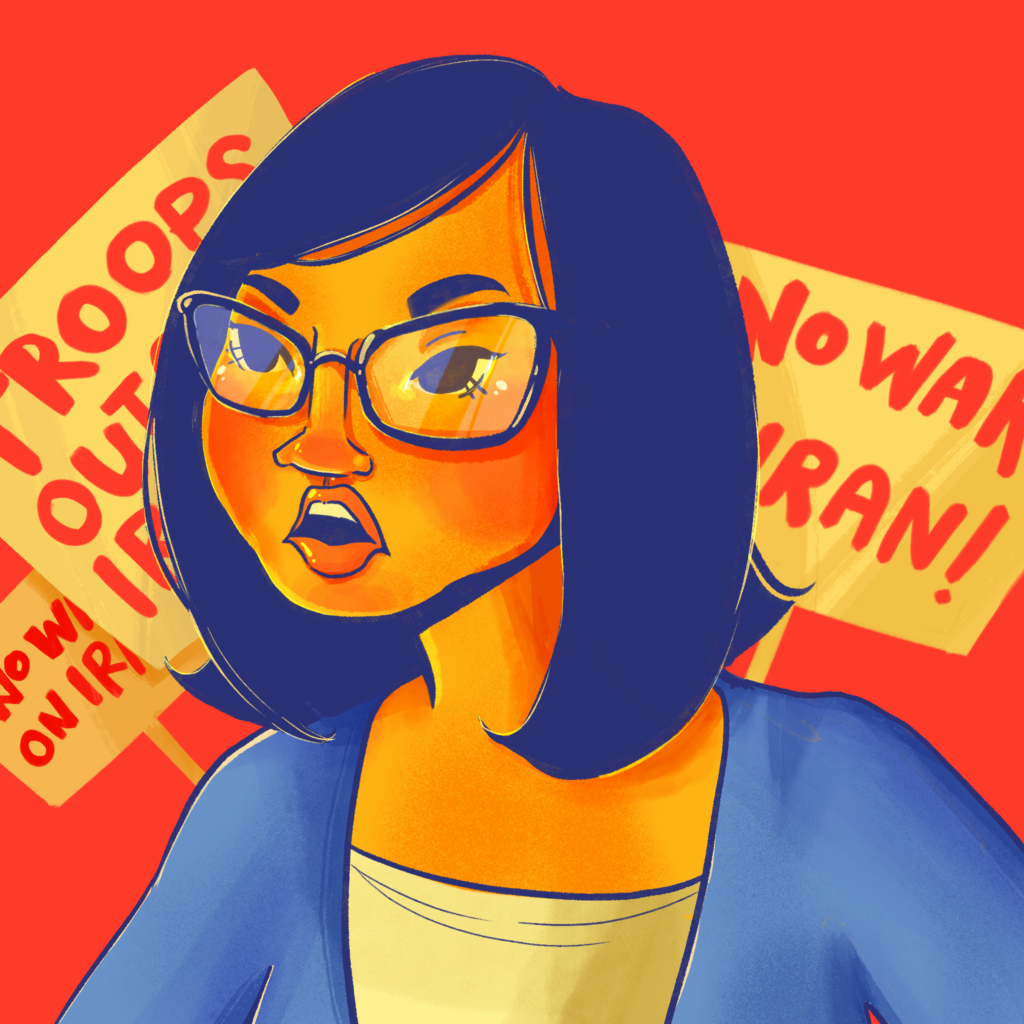
Anh was a fellow this past summer in Philly, a city she has deep roots in. It’s the first American city she came to for college, where she met her partner, and where her community of supporters and friends are. Anh studied journalism and always wanted to be a journalist. Being in Philadelphia shaped her experiences and organizing journey. We asked her to share some reflections with everyone about her time with Seeding Change.
How did you come to social justice organizing?
I’ve learned from my experience that wow America is not what Hollywood painted it to be. I had never seen a homeless person in a Hollywood movie, until I came to Philly, which is the poorest big city in America, and also the home of the number one business school – the Wharton School of the University of Pennsylvania. I started to see the racial hierarchy. All my professors were white, all the dining and custodial staff are Black, and Asians are kind of floating in between. I see professional Asians like pharmacists and sometimes teachers. And I also the nail salon workers who are usually refugees and don’t speak English. I have come from a family that was very proud of our heritage and our resistance history. They were organizers. My grandparents, and my parents to an extent. It’s always about wanting to understand why people sometimes do things against their interest. Why do they act in a way that we think is absurd or hurting themselves? So I started to get involved with VietLead in a volunteer capacity – calling people to get mammograms, attending rallies on anti-deportation, and I realized the gap between the Viet community and understanding the issues that face us. There is a lack of analysis of the structural powers and historical forces that put us here. What does it mean for us to be in community with Viet people and with other people of color? After I graduated from college I followed my dreams to be a journalist but it didn’t pan out so I came back to Philly to work part time for VietLead, and now full time after Seeding Change. I work on civic empowerment issues and talk to community members about the barriers that exist for us and how to remove those barriers so we can realize our power.
This past summer, Anh was part of our first ever remote fellowship because of the global pandemic. Anh shared this about what the summer felt like:
I didn’t think the connections and relationship built through an online program could still be so real and tangible. Seeding Change lives on through my relationship with other fellows. We just started with questions. We’re very curious about this world and how to navigate this world together. From talking with one fellow about getting unemployment benefits to another about Marxism. We all want to learn from each other. I’ve learned to be in community with a different mindset. We’re not trying to be rich or get a job. We’re actually just navigating this crazy world together and we want to learn more about this world. I felt I was missing that for a long time – this kind of being in solidarity with friends who are stumbling around and trying to figure things out. Seeding Change also helped strengthen my understanding of a pan-Asian community from hearing other fellow’s family histories. Just hearing people’s stories really stuck with me. This really enriches my understanding of community a lot.
How has Seeding Change impacted you as an organizer?
I would say I was a much more chaotic person in my organizing before Seeding Change. I was passionate in a way that put my capacity on the line. I felt like I had to throw myself 100% in, which is a weird way of organizing because it’s not like a math problem you can solve by yourself in your room. So Seeding Change presented an intentional organization that was about building intention and foundations to build power collaborative with other people for the world that we all deserve. I need to understand my community – what they want and what they think. And then work with other people to really realize that goal. And it doesn’t have to be anything big. It means changing material conditions before realizing big political shifts. And that will take us a long time. Before Seeding Change I was living a fast life and trying to fix things in a way that would make me out of breath, running out of breath. I am now much more comfortable seeing that this is life long work that involves a lot of people and the next generations. The work now is to improve ourselves and be in solidarity and community with people to build the world that we want.